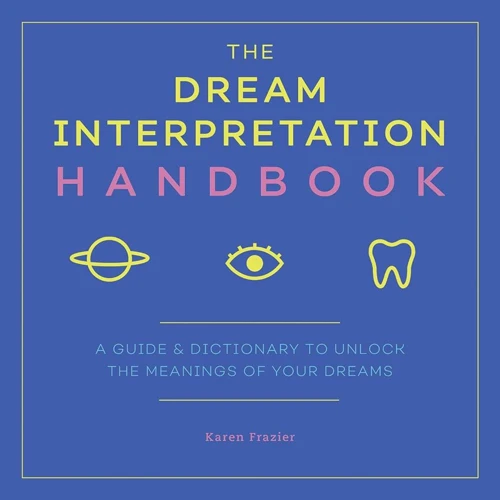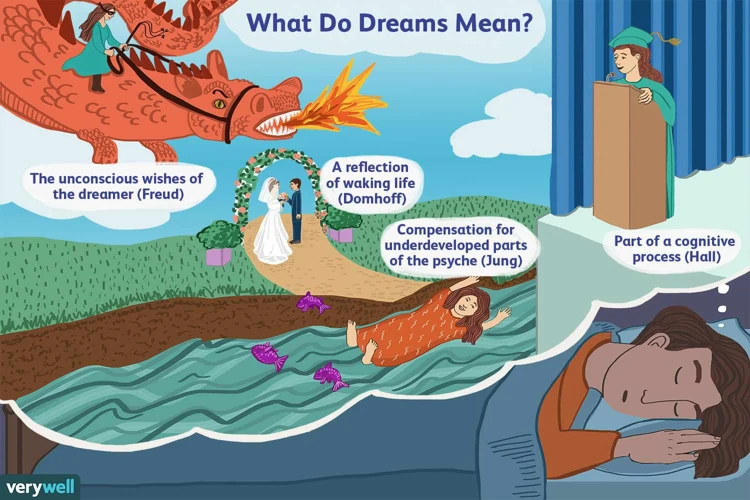Have you ever found yourself in a dream where you desperately try to speak, but no words come out? It’s a perplexing experience that leaves many dreamers wondering why they can’t talk in their dreams. In this article, we will delve into the meaning behind being unable to speak in dreams, exploring common interpretations, psychological explanations, symbolic meanings, personal experiences, and even techniques for lucid dreaming and communicating within dreams. Through understanding these different perspectives, we hope to shed some light on this mysterious phenomenon and provide insights into the realm of dreams. So, let’s dive in and unravel the enigma of speechlessness in dreams.
Common Interpretations

When we explore the common interpretations behind not being able to talk in dreams, several themes emerge. Let’s delve into them:
| Lack of Control and Expression: | One interpretation suggests that being unable to speak in dreams reflects a lack of control or difficulty expressing oneself in waking life. |
| Suppressed Emotions and Desires: | Another explanation suggests that the inability to speak in dreams may stem from suppressed emotions or unfulfilled desires that are seeking expression. |
These interpretations highlight the potential psychological significance behind the inability to speak in dreams. Let’s explore further to gain a deeper understanding.
Lack of Control and Expression
When examining the lack of control and expression as a potential interpretation for why individuals can’t talk in dreams, a few key points come to light:
- Struggling for Voice: Dreams where you can’t speak might signify a struggle for autonomy and the inability to assert yourself in waking life. It could be linked to situations where you feel suppressed or unable to voice your opinions confidently.
- Fear of Judgement: The dream inability to speak may also stem from a fear of judgment or criticism. It could reflect concerns about how your thoughts or ideas will be received by others.
- Desire for Control: In some instances, being unable to talk in dreams might arise from a subconscious desire for control. This can manifest as feeling powerless or being unable to influence outcomes in various areas of your life.
Exploring these facets of the lack of control and expression within dreams can offer valuable insights into your emotional state and areas where you may wish to regain a sense of agency.
Suppressed Emotions and Desires
Exploring the concept of suppressed emotions and desires in relation to the inability to speak in dreams brings intriguing insights. Dreams often serve as a space for our unconscious mind to process and express our deepest emotions and desires. When we are unable to speak in a dream, it may suggest a reluctance or difficulty in acknowledging and expressing these suppressed emotions or desires. It could be a sign that certain aspects of ourselves are being ignored or neglected in waking life. By paying attention to the emotions and desires that arise in our dreams, we can gain valuable insights into our subconscious mind and work towards resolving any underlying issues. For instance, a dream about not being able to speak while wearing a specific outfit, like dream clothes, might symbolize a suppressed need for self-expression or acceptance. The dream acts as a mirror, urging us to explore these suppressed emotions and desires for personal growth and fulfillment.
Psychological Explanations

Anxiety and Fear:
One psychological explanation for the inability to speak in dreams is linked to anxiety and fear. Dreams often serve as a way for our unconscious mind to process and work through emotions, and if we are experiencing high levels of anxiety or fear in our waking life, it may manifest as being voiceless in our dreams. The inability to speak can symbolize a lack of control or feeling overwhelmed by these emotions.
Communication Breakdown:
Another psychological explanation suggests that the inability to speak in dreams represents a breakdown in communication. It could reflect difficulties in expressing oneself or feeling unheard in waking life. Whether it’s struggling to communicate effectively with others or feeling misunderstood, the inability to talk in dreams may be a manifestation of these communication challenges.
By exploring these psychological explanations, we can begin to understand how our subconscious mind may be using the inability to speak in dreams as a means of processing emotions and addressing communication issues. Let’s continue our exploration to uncover further symbolic meanings behind this dream phenomenon.
Anxiety and Fear
Anxiety and fear play a significant role in the psychological explanations for the inability to speak in dreams. Here are some key points to consider:
- Emotional Blockage: Anxiety and fear can create emotional blockages that prevent us from expressing ourselves, even in our dreams.
- Suppression of Thoughts: During periods of heightened anxiety, our thoughts and ideas can become suppressed, leading to difficulty in verbalizing them, even within the dream realm.
- Powerlessness: Feelings of powerlessness in the face of anxiety and fear can manifest as an inability to speak in dreams, symbolizing a loss of control over one’s own voice and expression.
By examining the role of anxiety and fear in dreams, we gain insight into the deeper psychological factors that contribute to our inability to speak. Now, let’s dig deeper into how communication breakdowns can also play a role.
Communication Breakdown
One psychological explanation for why we can’t talk in dreams is a communication breakdown.
When we dream, our brains are highly active, processing various thoughts, emotions, and memories. However, these processes don’t always align perfectly, leading to communication difficulties within our dreams.
Just as in real life, miscommunications can occur, interrupting our ability to speak in dreams. It’s as if there is a disconnection between our thoughts and our vocal cords, preventing us from verbalizing our thoughts effectively.
This communication breakdown in dreams might be influenced by underlying anxiety or fear, which we will explore in the next section.
Symbolic Meanings

When it comes to the symbolic meanings behind the inability to speak in dreams, two main interpretations arise:
- Loss of Power or Identity: In some instances, the inability to speak in dreams can symbolize a loss of power or a feeling of being voiceless in waking life. It may reflect a sense of powerlessness or a struggle to assert oneself in certain situations.
- Self-Doubt or Limited Self-Expression: The lack of ability to speak in dreams can also represent feelings of self-doubt or limitations in self-expression. It may suggest an inner conflict between wanting to communicate effectively and feeling inhibited or unsure of one’s own voice.
These symbolic interpretations provide us with insights into the deeper psychological implications behind the phenomenon of being unable to speak in dreams. To explore further, let’s delve into personal experiences and how they may contribute to this dream experience.
Loss of Power or Identity
One symbolic meaning behind the inability to speak in dreams is the notion of a loss of power or identity. Dreams are known to represent various aspects of our psyche, and when we cannot speak in our dreams, it may signify a feeling of powerlessness or a loss of personal identity. The inability to communicate verbally can reflect a sense of being silenced or suppressed in waking life, where one may feel unable to assert their opinions or express their true selves. This dream experience could serve as a reminder to examine our feelings of power and identity both within our dreams and our waking world, and consider ways in which we can reclaim our voice and assert ourselves confidently. To explore more about dreams and their symbolism, check out our article on car dreams or chocolate dream meanings.
Self-Doubt or Limited Self-Expression
When we delve into the symbolic meanings behind the inability to speak in dreams, we come across several intriguing insights:
| Loss of Power or Identity: | The inability to speak in dreams may symbolize a loss of power or identity, indicating feelings of inadequacy or a sense of being silenced in one’s waking life. |
| Self-Doubt or Limited Self-Expression: | Another interpretation suggests that the inability to speak in dreams reflects self-doubt or limited self-expression, hinting at internal struggles or external constraints that inhibit one’s ability to communicate effectively. |
These symbolic meanings shed light on the deeper psychological implications and invite us to explore personal experiences to gain a more personalized understanding. Let’s continue our exploration.
Personal Experiences

Personal experiences can play a significant role in why individuals cannot talk in their dreams. Here are a couple of aspects to consider:
- Traumatic Experiences: Some individuals who have experienced trauma or distressing events in their lives may find it difficult to speak in their dreams. Trauma can subconsciously manifest in dreams, inhibiting communication abilities.
- Childhood Memories and Insecurities: Childhood memories and unresolved insecurities can also factor into the inability to speak in dreams. These experiences can create a sense of powerlessness or fear, limiting one’s ability to communicate in the dream world.
By examining personal experiences, we gain insight into how our past can influence our dream state and impact our ability to articulate ourselves within it.
Traumatic Experiences
When it comes to examining the connection between the inability to speak in dreams and traumatic experiences, we uncover some insightful theories:
- Emotional Suppression: Traumatic experiences can lead to emotional suppression, where the mind tries to protect itself by burying painful memories and emotions. In dreams, the inability to speak may be a manifestation of these suppressed emotions, signaling the need for healing and expression.
- Powerlessness: Trauma can leave individuals feeling powerless and voiceless. The inability to speak in dreams could represent this sense of powerlessness, reflecting the lingering effects of the traumatic experience.
It’s important to note that each person’s experiences and interpretations may be unique. Exploring and processing traumatic experiences in a safe and supportive environment can assist in understanding and addressing these dream patterns.
Childhood Memories and Insecurities
Childhood memories and insecurities play a significant role in understanding why individuals may be unable to speak in dreams. Our early experiences and insecurities can shape our subconscious mind and influence our dreams in various ways:
- Unresolved Childhood Traumas: Traumatic experiences from childhood can manifest in our dreams, causing us to feel voiceless or unable to communicate. These dreams may reflect unresolved emotions and the need for healing.
- Insecurities and Self-Doubt: Insecurities developed during childhood can linger into adulthood and impact our ability to express ourselves. Dreams where we are unable to speak may mirror these deep-seated insecurities and self-doubt.
Exploring our childhood memories and addressing any unresolved traumas or insecurities can aid in deciphering the meaning behind our inability to speak in dreams.
Lucid Dreaming and Communicating
Lucid dreaming offers an
Subscribe to Our Newsletter
Sign up to receive the latest news and updates.
- Achieving Lucidity: Lucid dreaming is a state where the dreamer becomes aware that they are dreaming, allowing them to have some level of control and consciousness within the dream. By practicing techniques such as reality checks and dream journaling, individuals can increase their chances of achieving lucidity.
- Experimenting with Communication Techniques: Once lucidity is attained, dreamers can experiment with various communication techniques within their dreams. These can include using gestures, telepathy, or even attempting to speak despite the initial difficulty. Exploring these methods can help dreamers overcome the barrier of speechlessness and potentially interact with dream characters or the dream environment.
Lucid dreaming opens up exciting possibilities for engaging in meaningful communication within the dream world. By actively cultivating lucidity and exploring different communication techniques, dreamers can navigate the challenge of being unable to speak in dreams and unlock new avenues of self-expression.
Achieving Lucidity
In order to explore the topic of achieving lucidity in dreams and the ability to communicate, we need to understand what lucid dreaming is and how it can be achieved:
- Awareness and Recognition: Lucid dreaming is when the dreamer becomes aware that they are dreaming while still within the dream itself. This awareness allows them to recognize that they have control over their dream environment.
- Reality Checks: One technique to achieve lucidity is to regularly perform reality checks throughout waking life. These involve questioning the current reality by looking for inconsistencies, such as checking the time, re-reading text, or observing one’s surroundings. By making this a habit, it increases the chances of performing these checks within a dream and realizing that it is a dream.
- Dream Journalling: Keeping a dream journal can also aid in achieving lucidity. By writing down and reflecting on dreams regularly, dreamers become more in tune with the patterns, symbols, and feelings present in their dreams. This heightened awareness can translate into lucid dreaming experiences.
By practicing these techniques and honing the skill of lucid dreaming, dreamers may find new ways to communicate and overcome the inability to talk in dreams.
Experimenting with Communication Techniques
If you want to explore the realm of communication within dreams, there are various techniques you can experiment with. These techniques can help you gain control of your dream and potentially overcome the challenge of being unable to speak. Here are a few methods to try:
- Reality Checks: Practice reality checks in your waking life, such as looking at your hands or trying to push your finger through your palm. Over time, these reality checks will become habitual, and you may start doing them in your dreams, helping you become lucid and potentially able to communicate.
- Meditation and Visualization: Before going to sleep, practice calming meditation and visualize yourself in a dream where you are actively communicating. This can help set intentions and enhance your chances of lucid dreaming.
- Dream Journaling: Keep a dream journal and write down your dreams as soon as you wake up. This practice helps improve dream recall and increases your awareness of dream patterns, making it easier to recognize when you’re dreaming.
By incorporating these techniques into your routine, you can increase your chances of achieving lucidity and exploring the fascinating world of dream communication.
Conclusion
As we come to the conclusion of our exploration into the meaning behind being unable to speak in dreams, we can see that there are various interpretations and explanations for this phenomenon. While some believe it may stem from a lack of control or suppressed emotions, others see it as symbolic of a loss of power or limited self-expression. Personal experiences, such as traumatic events or childhood memories, can also play a role in shaping our dreams. Additionally, techniques like lucid dreaming offer possibilities for communication within dreams. Whether we seek a psychological understanding or delve into the symbolic significance, the enigma of speechlessness in dreams remains intriguing and open to interpretation. Perhaps exploring and reflecting on our dreams can help us uncover hidden messages within ourselves and expand our understanding of the human mind.
Frequently Asked Questions
FAQs About Being Unable to Speak in Dreams
1. Why do I sometimes feel like I’m trying to scream or speak in my dreams, but nothing comes out?
In dreams, the inability to speak or make sounds can symbolize frustration or a sense of powerlessness, often related to a lack of control or difficulty expressing yourself in waking life.
2. Can the inability to speak in dreams be associated with anxiety or fear?
Absolutely. The subconscious mind often uses dreams as a way to process and confront fears or anxieties. Being unable to speak in a dream may indicate underlying feelings of fear or anxiety that need to be addressed.
3. Is there a connection between not being able to talk in dreams and suppressed emotions?
Yes, the inability to speak in dreams can be linked to suppressed emotions or desires that are seeking expression but may be repressed in waking life. Dreams provide an outlet for the subconscious mind to try to resolve these unresolved emotions or desires.
4. Are there any cultural or symbolic meanings associated with being mute in dreams?
Indeed, different cultures and belief systems may interpret the inability to speak in dreams differently. In some societies, it can be seen as a sign of powerlessness or lost voice, while in others, it may represent the need for introspection and listening to one’s inner self.
5. Can recurring dreams of being unable to speak indicate a deeper psychological issue?
Recurring dreams of being unable to speak may point towards a deeper psychological issue, such as feelings of powerlessness, lack of self-expression, or communication difficulties. It may be beneficial to explore these recurring dreams further with a therapist or dream analyst.
6. Is the inability to speak in dreams related to a loss of power or identity?
Indeed, the inability to speak in dreams can sometimes symbolize a loss of power or identity. It may reflect a sense of being voiceless or unheard in certain situations or relationships in your waking life.
7. Can being unable to speak in dreams be connected to childhood insecurities or memories?
Absolutely. Childhood insecurities and memories can shape our dreams. The inability to speak in dreams may be linked to experiences or emotions from childhood that still influence us subconsciously.
8. Can lucid dreaming help overcome the issue of not being able to speak in dreams?
Yes, lucid dreaming can be a powerful tool for overcoming the inability to speak in dreams. By becoming aware that you are dreaming while in the dream state, you can consciously choose to break free from the limitations and engage in communication within the dream.
9. Are there any techniques that can be used to enhance communication within dreams?
Absolutely. Techniques such as reality checks, dream journals, and visualization exercises can help improve dream recall and enhance your ability to communicate in dreams through practice and increased dream awareness.
10. Should I be concerned if I can’t talk in my dreams?
In most cases, the inability to talk in dreams is a normal occurrence. However, if it causes significant distress or is accompanied by other ongoing difficulties in your waking life, it may be worth discussing with a mental health professional who can provide support and guidance.










